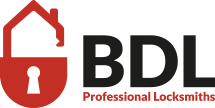You can have surveillance cameras, the most secure locks and the biggest guard dog in the world, but one area that people tend to overlook when thinking of home security is their own personal use of social media.
Many of us in a household will use some form of social media, whether it’s Mum on Facebook or your 13 year old son on SnapChat, we are all using social platforms at an increasing rate. People are less aware that the sharing of even the most minute detail can be very personal .In fact, when users post updates on social media, especially those that are less selective in accepting friend requests, they may unintentionally be sharing important and private information with some unsavory characters in addition to their real-life friends. Outlined below are a few quick guidelines that will help you share smarter and keep your home and valuables safe.
Checking In to bars and restaurants
We are encouraged to do this sometimes in order to claim offers or discounts, but you should think carefully before doing so , and even tagging friends as it tells people that you are out of the house and how long you likely will be.
Holiday Countdowns
We have all seen the “ 5 more sleeps til…” updates. Everyone gets excited about an upcoming holiday or break away, but we should be more conservative about announcing this online. Not only do we leave ourselves open to intruders but also squatters.
House or Pet Sitters
If you have someone that will be entering your home to check on pets, post or to water your plants, be careful that you don’t make arrangements or divulge where keys are hidden while online.
House Damage
If you are unlucky enough to have your house hit by high winds or flooding or some unforeseen disaster, it’s best not to post photos of the damage online. You are giving people opportunities to see where security could possibly be compromised with unstable walls or doors.
Renovation or Redecoration
You have just had your house refurbished or redecorated your lounge and it looks amazing! Think twice before posting photos online. Potential intruders can not only see what valuables and possessions you may have, but also where the entry points to your home might be.
RSVP and event invites
Public RSVPs to parties, school events, Evites (even only to people you think you know), and even weddings have been known to give intruders cause to target your home. It is easier than most people think to find someone’s address online — given only their phone number or email address. If you want to invite guests to your home, it is best to do so privately.
Smart security systems and impenetrable locks installed in the home is ALWAYS the best way to stop intruders gaining access to your home, but you should also be aware of the information that you are sharing online.



